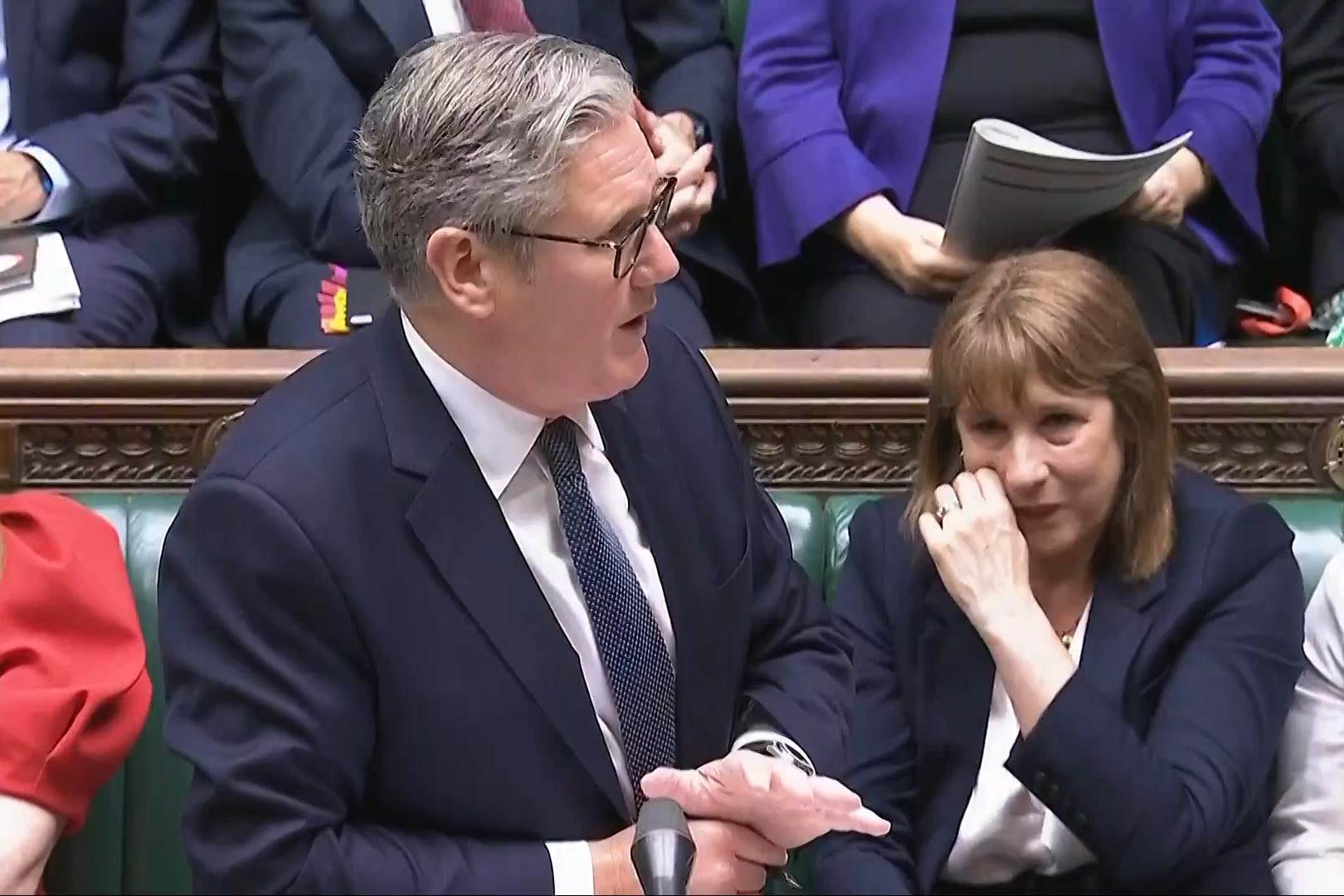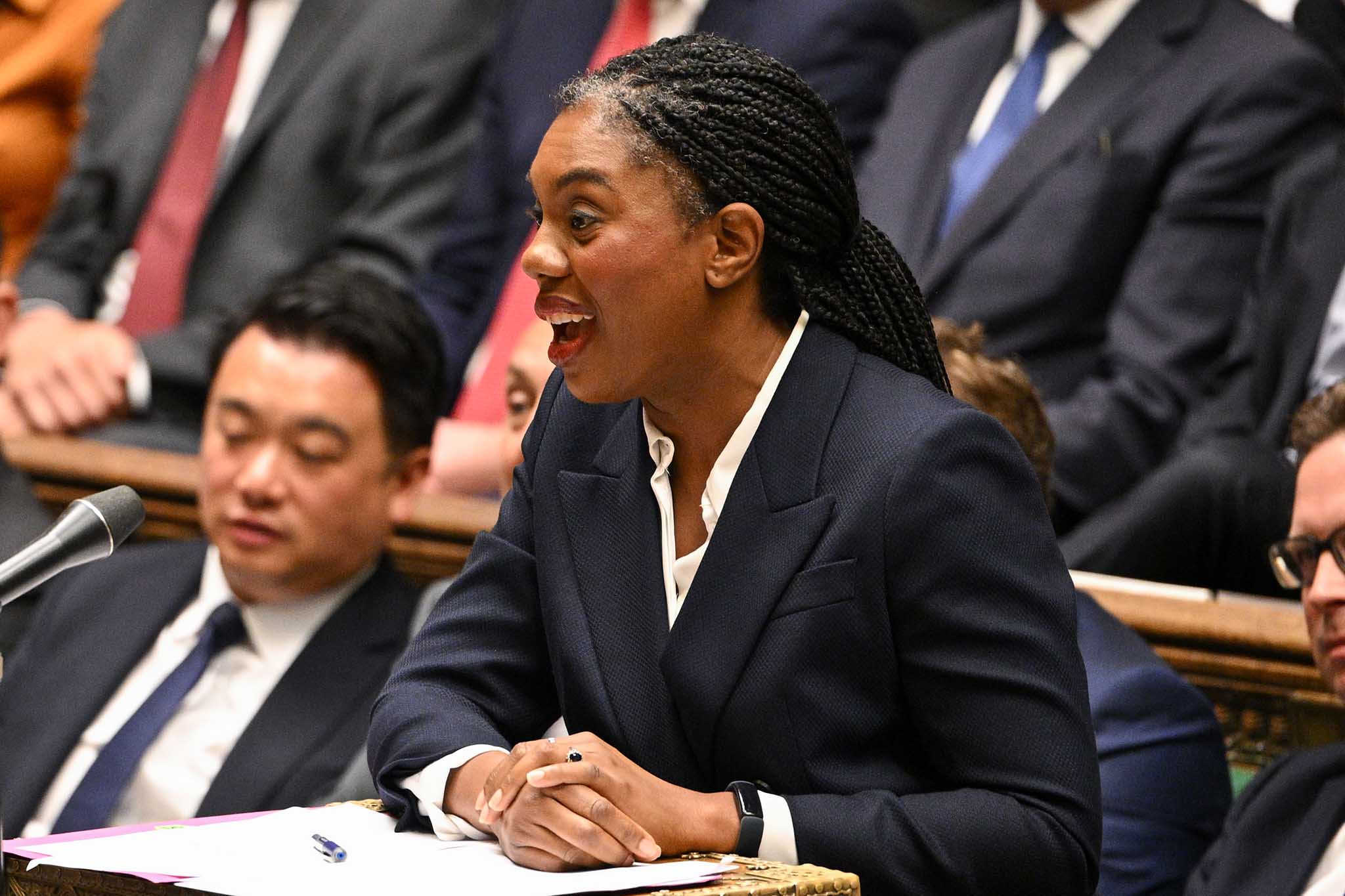A distressed Rachel Reeves shed tears in the House of Commons on Wednesday as Sir Keir Starmer dodged a question over her future on a day when the government appeared to be spiralling out of control.
Following a damaging rebellion over welfare cuts by 49 Labour MPs, the prime minister floundered at Prime Minister’s Questions and refused to rule out new taxes to pay for the £5bn funding gap created by his welfare U-turns.
A senior Labour figure said the backbench revolt – and the last-minute concessions that hollowed out the welfare bill – were “terminal” for the prime minister’s political prospects.
The PM is facing pressure to sack Ms Reeves and his controversial chief of staff Morgan McSweeney, both of whom held partly responsible for the welfare fiasco, and there have been renewed calls for a wealth tax to balance the books.
And after the Institute of Fiscal Studies (IFS) revealed the watered-down welfare reforms would end up costing money rather than saving billions as originally planned, the bond markets also became uneasy.

Ms Reeves appeared emotional at PMQs as opposition leader Kemi Badenoch mocked her as looking “absolutely miserable” and pressed Sir Keir on whether the chancellor’s job was even guaranteed.
“Labour MPs are going on the record saying that the chancellor is toast,” the Conservative leader said. “The reality is that she is a human shield for the prime minister’s incompetence. In January, he said that she would be in post until the next election. Will she really?”
Instead of confirming Ms Reeves would stay, Sir Keir ignored the question and chose insult the Tory leader.
“I have to say that I am always cheered up when she asks me questions or responds to a statement, because she always makes a complete mess of it and shows just how unserious and irrelevant the Conservatives are,” he said.
Ms Reeves’ sister Ellie, a Labour MP and minister, appeared to hold the chancellor’s hand as the pair left the chamber.
Downing Street later insisted Ms Reeves has Sir Keir’s “full backing”, while a spokesperson said Ms Reeves had been upset over a “personal matter.” Later still, it was claimed by ministers that Ms Reeves had been left in tears by an altercation with speaker Sir Lindsay Hoyle who had complained to her about her performance at Treasury questions on Tuesday. The speaker’s office has declined to comment.
Just two days short of the first anniversary of his landslide election victory, the shambolic scenes came as pressure mounted on Sir Keir to make a radical shift by sacking key figures and adopting wealth taxes.
Earlier, Labour backbench rebel leader Rachel Maskell had demanded that the prime minister needed to “listen to MPs” and others in the wake of the bruising welfare debate.
She insisted that Sir Keir and his chancellor now needed to “consider a wealth tax” to fill the £5bn financial black hole left by the benefits concessions.

The proposal has strong cabinet support with a memo leaked last month showing that deputy prime minister Angela Rayner, now being discussed as a replacement for Sir Keir, had suggested eight different wealth taxes on big corporations and the super rich instead of cuts.
The Trades Union Congress – containing Labour’s biggest financial backers – are also running a lobbying campaign with MPs to push for a change in directions.
Concern in the City over the prospect of more tax rises were highlighted by Gordon Shannon, a fund manager at TwentyFour Asset Management, who warned: “Gilt investors wanted to see spending cuts. Now the government’s only exit is tax rises, risking a death spiral of growth destruction.”
The value of the pound and gilts dropped as Sir Keir spoke in the Commons, while yields on government bonds rose – meaning higher borrowing costs.
Kathleen Brooks, research director at XTB, said: “If yields continue to rise at this pace for the next few days, the PM and chancellor will have to decide if they want to have a sensible fiscal policy whereby public sector debt is reined in, or whether they want to please the Labour backbenches, who don’t seem worried by rising debt levels and forget that we are in a new era, where bond investors can shun sovereign debt in favour of less risky, less indebted corporate debt.
“Overall, this could be the start of another fiscal crisis for the UK.”






